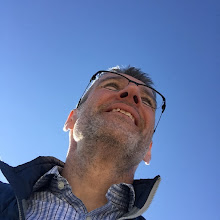In its wisdom the Daily Telegraph editor published a letter from a Mr Pratt earlier this week who compalined about the behaviour of a particular category of road user. Now of course this has promted a couple of responses that are also published and available on the website under the title of 'Correct etiquette for cyclists crossing the road'. Of course what this type of debate does is polarise opinion and set the various classes of users of the space against each other. There is sadly never a reasoned debate as all humans believe themselves to be put upon and that another has some advantage or benefit to which they should be entitled.
I suppose that the DfT and other authorities, such as TfL in London, who are actually responsible for this shared space are amused by the 'divide and rule' approach perpetually ongoing in this debate. Because actually the situation on our roads if applied to rail or air transport would be wholly unacceptable. The injury or deaths and the resulting consequences in terms of personal or financial hardship are wholly unacceptable. But no! Lets allow an argument between the various users and watch them to blame each other rather than deal with the issue.
The orginal complaint letter from Mr Pratt made his concerns clear about road safety. He sought to raise in a responsible manner his worry that a particular class of road user, cyclists, fail to take account of the safety issues of their behaviour. This is a good point and one that all users of the space should seriously head. I am sure that Mr Pratt has never as a safe road user (irrespective of his choice of transport):
# exceeded the speed limit
# parked on a double yellow line
# proceeded on a red traffic light
For good reason these are criminal offences that are punished by courts where the individual is caught. But why do people, human beings, break the rules for this shared space? Well in my experience it is because humans are intelligent beings and the system that we are using is visibly faulty and we can see a better way. So rather than follow outdated or inappropriate rules we make our own decisions.
So how did we get to a point where the system does not suit what it is being used for? Well our planners for transport have not done a good job. People bought more and more and many different types of transport and nobody thought about the consequences and planned for the future.
However it is not all lost but we do have to 'get a grip' as one organisation is urged to do right now. Start small but make bold decisions to reverse the decades of mistakes. Take away traffic lights is a sensible suggestion. In my view more lights, signs, paint work and complex rules will not result in more effective and safe use of the space. In fact the opposite as it leads to a belief of a right to something over another user. The corresponding 'responsibility' unfortunately does not fit on the sign. So lets make life simpler and safer. And when we have decluttered the system then our resources for enforcement can focus on the really important issues that remain.
As an aside, so often we see the use of a phrase including '... the Highway Code' in these arguments between classes of road users. I would doubt that many of the recent correspondents to the Daily Telegraph own a current issue of this vital book and even fewer have a clear understanding of the legal status of the contents. The Introduction online provides clarity on the different rules and how to distinguish them and when they constitute a legal requirement which if disobeyed will result in a criminal prosecution. However, expecting people to have a comprehensive knowledge of this rule book in my opinion is unrealistic.
To return to the purpose it is the case that investment in infrastructure is currently the focus to solve our economic problems so we have an opportunity to grasp. Focus the billions of pounds not on an airport for a few people to fly into and back out of but on hundreds of thousands of relatively small local projects that will liberate the activity of millions of people from sitting unproductive in queues of traffic. Why not also help these same people avoid the poisons that that they breathe and their restricted minimal physical activity and get them more active on those short journeys. Make the transport infrastructure safer for the population who today make those restricted choices but end up injured or dying because the authorities are unable or unwilling to provide a system that works and encourages the sharing and mutual respect.
Some bad news and a welcome challenge
-
On return from two weeks leave an unwelcome message tells me that the IT
company has gone into administration. An administration protects the
company and m...
6 years ago

No comments:
Post a Comment